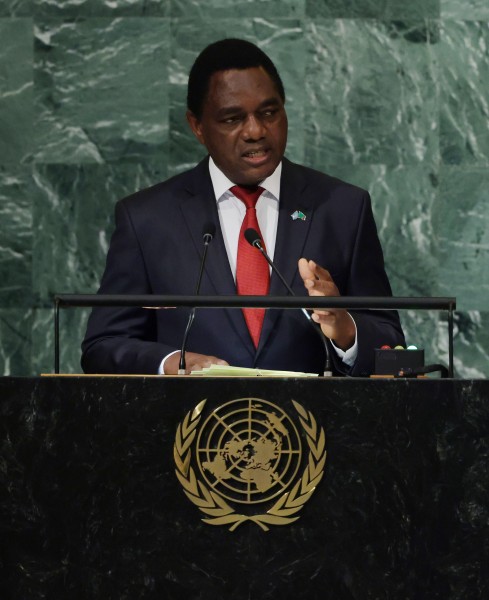Witnesses took the stand in the Zambian capital Lusaka on Thursday for a second day in the trial of Zambia’s The Post news editor Chansa Kabwela, who faces up to five years in prison over charges of ‘circulating obscene material with intent to corrupt public morals’ after she mailed photographs of a woman giving birth in public to the country’s vice-president and health minister.
The photos – which were mailed along with letters – show the woman in a breech birth position, without proper medical attention, outside Lusaka’s main hospital. She had allegedly been turned away from two clinics in which the nurses were taking part in an ongoing health strike.
The child pictured in the images died during the birth.
Kabwela sent the photographs to the government members to draw attention to the effects of the strike, but was arrested under Section 177(b) of the Penal Code on 13 July. She pleaded ‘not guilty’ to the charges in court the following day.
The prosecution’s first move at Wednesday’s hearing was to attempt to muzzle The Post by claiming that a 14 July opinion piece in the paper by media freedom organisation ‘Reporters without Borders’ constituted “contempt of court,” and that charges would be pressed unless the court banned any further comment on the trial in the newspaper.
Lawyers representing Kabwela pointed out that a decision by the government-controlled Times of Zambia to publish a letter written by the defendant to the Non-Governmental Organisations Coordinating Committee, a group of women’s NGOs, could also have an adverse effect on the court proceedings, as could President Banda’s comments referring to the images mailed by Kabwela as “pornographic,” and his suggestions that the person responsible for them “should be arrested.”
The magistrate on Thursday warned the media to be “mindful of what the law states,” and to make sure that coverage of the case is not prejudicial.
The prosecution has so far called five witnesses to the stand – including the secretary to the vice-president, the personal assistant to the health minister and the personal assistant to the cabinet secretary – asking them to explain how the photographs contained in the letter “corrupted their morals.”
The prosecution intends to bring five more witnesses to the stand at the next hearing, on 28 August.
“I am happy that the case has taken off and the trial started, giving me and The Post the opportunity to clear our names,” Kabwela told IPI. “We leave it to the courts to determine the outcome.”
To many, the trial appears to be part of an ongoing attempt by Zambia’s rulers to bully The Post – a critical newspaper – into silence.
Since the beginning of 2009, there have been reports of journalists at the newspaper being singled out for harassment at government events. Reporters have also faced threats and beatings, and have at times been barred from attending public events.
“The way this trial has begun, with attempts by the prosecution to have the media gagged, is strongly indicative of the pressure under which the independent media in Zambia is forced to operate,” said IPI Deputy Director, Michael Kudlak. “We hope the courts will exercise complete impartiality, and reach the obvious conclusion that Chansa Kabwela’s actions were in the public interest and well within the confines of freedom of expression.”


